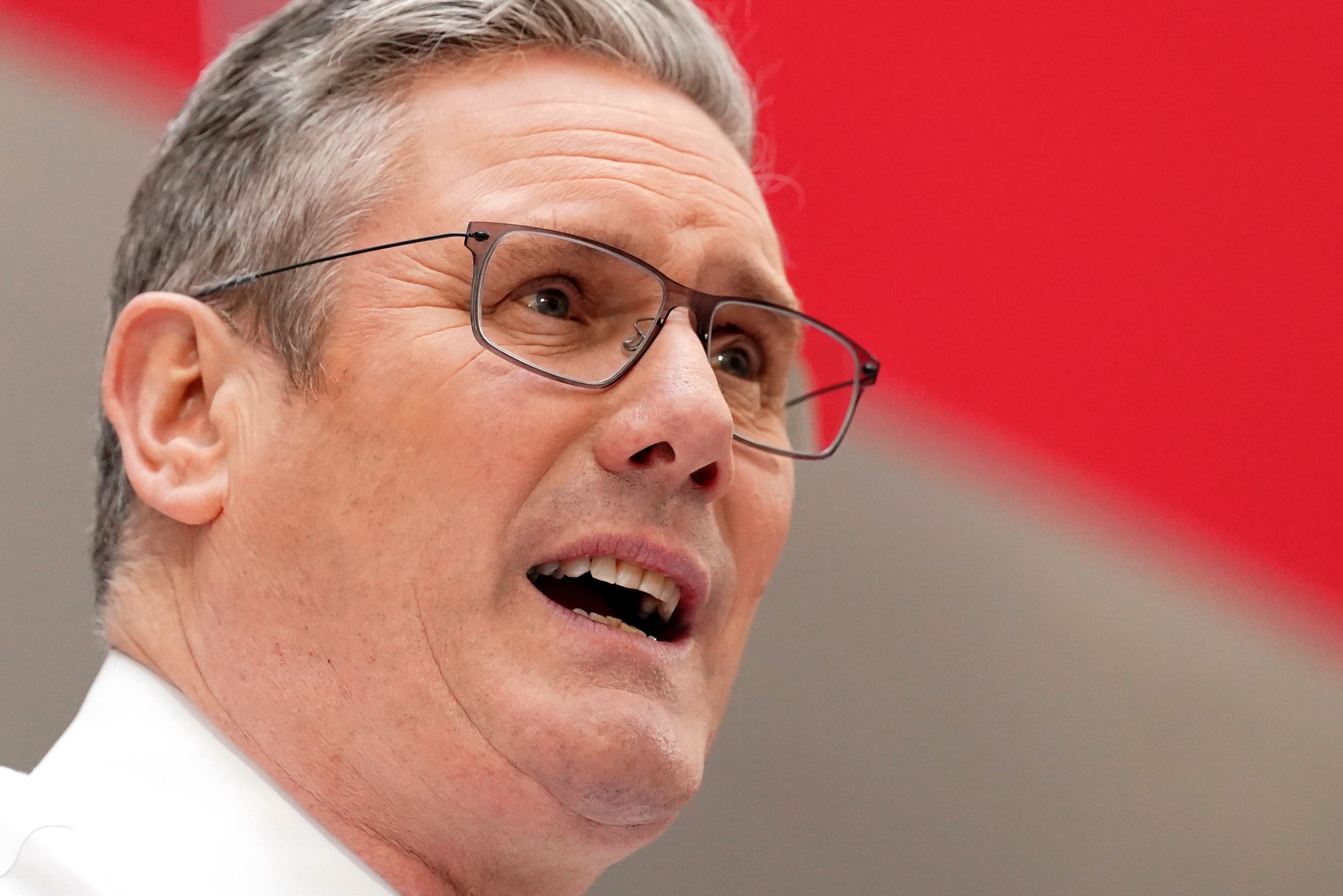Starmer’s City speech – and what it means for the economy
What the Labour leader said was less important than who was there


What Keir Starmer said at his recent City of London speech – surprise, surprise he wants the UK to be the fastest growing economy in the G7 – was less important than who was there: the head of the CBI, assorted business leaders, big noises such as former Bank of England governor Mark Carney.
The Labour leader is rather successfully shifting the narrative from his leading a possible government-in-waiting to his preparing to head the actual government in waiting. As such, an event like this – and its future analogues – is no longer something you might go along to if your diary’s quiet. It’s a must.
The party coffers have also been boosted to the tune of £2m, courtesy Lord Sainsbury – who is back onside. That matters.
The Labour leader is often compared unfavourably to Tony Blair, who could have pulled off talking about missions (boosting the UK economy is one of Starmer’s) with ease. When Starmer does it, you still tend to wince a bit. He’s a bit awkward when it comes to having vision. But the journey matters much less than the destination – and the destination is No 10 Downing Street.
Starmer is, nonetheless, starting to write some big cheques in his hunger to get there. He’s certainly not heard of “under promising, over delivering”. To be fair, few politicians have.
Will he be able to cash them? Starmer warned that if current trends continue, the spluttering UK plc risks getting overtaken by Poland in 10 years, even Romania and Bulgaria down the track. They probably won’t. But his line was rather undiplomatic. How would we feel if, say, the Germans were fretting about Britain catching them up? Not that the latter is likely to happen on current form. Starmer is not wrong that Britain needs growth that the Tories are singularly failing to provide.
The chaos of Boris Johnson’s premiership was followed by Liz Truss’s attempt at economic suicide. Rishi Sunak might just be the best the Tories have got, but that doesn’t stop his party doing its damnedest to destroy any chance he has of delivering something better than his predecessors did.
The question remains: would you invest your hard-earned cash in an economy run by people like that? Fat chance.
Starmer can reverse this. He can credibly talk about Labour under his leadership delivering a more stable and credible Britain in which international investors can feel comfortable. No wild flights of ideological fancy from us!
But it takes more than delivering stability. You can very easily be stable and slow, which is not something you want. Starmer has been much woolier about, say, what he would to ease the labour shortages dogging the British economy. In part, that’s because he has to be. He is right to say immigration is not the only answer. For example, there is a vast cohort of disabled people who want work but can’t get it, because of prejudice. But Britain would still benefit from a little more of it and I suspect he knows that. He just can’t say it. As a result, I expect that he’ll speak out of both sides of his mouth, saying one thing in his speeches, quite another in private conversations with city types and business leaders and take it on the chin when people call him on it.
A bigger challenge comes in the form of tax. Starmer is backing Rishi Sunak’s decision to put corporation tax up to 24p in the pound from 19, a sharp increase that’s fast approaching. Despite what the business lobby would have you believe, this is not without justification. The government spent billions propping up businesses during the pandemic. It has spent billions more helping them with their fuel bills. Some of that money really ought to be returned by the beneficiaries. Individuals are already being asked to pay more, albeit largely through stealth taxes: they are finding themselves moving into higher tax brackets a lot earlier than they were in real terms.
But what is the right level? We know that aggressively cutting corporation tax does little to encourage investment. More than a decade of Tory policy has proved that. But you can also set it so high such that it becomes self-defeating, by steering activity away. Will Labour under Starmer have the wherewithal, and the political room, to address this if necessary?
The other, obvious, issue is Europe. Brexit has proven to be every bit the economic kick to the stomach than those of us who opposed it warned of. Being outside the single market does huge damage to the UK and its growth prospects. Starmer has promised a better relationship with Europe, a reset, which is smart. No one wants to invest in a county that’s a hissy fit away from a full-scale trade war with its biggest partner that just happens to be ten times its size.
But trade and investment and much else (see food shortages) are damaged by Britain ploughing its current lonely furrow. Electoral arithmetic – namely the Brexit red wall – keeps Starmer from having a grown up conversation with Britain about this. That, and the fact that most people are thoroughly fed up about the ongoing political warfare on the subject (something the Tories can’t seem to get their heads around).
Starmer stands a decent chance of having UK plc trade in Rishi Sunak’s Lada for a Ford Focus by dint of being a bit boring and the fact that he’s not a Tory. But Poland’s membership in the EU means it’s driving an Audi. Sorry, but Europe matters – especially to the economy.
Join our commenting forum
Join thought-provoking conversations, follow other Independent readers and see their replies
Comments
Bookmark popover
Removed from bookmarks